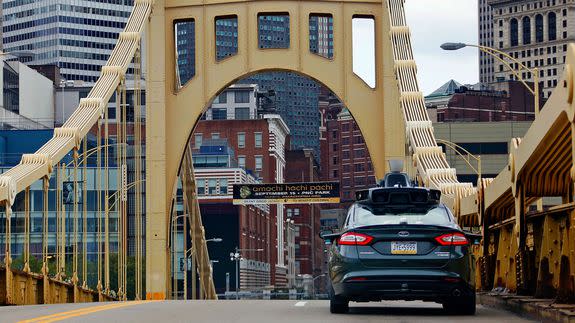New rules for self-driving cars will focus on testing, cybersecurity

The Obama administration is weighing in on self-driving cars with a new set of rules for car and tech companies that are expected to bring federal regulations up to date with technology.
The U.S. Department of Transportation is set to release a new set of guidelines for driverless cars that will dictate how car companies and others build, test and deploy such vehicles.
SEE ALSO: Sorry, driverless cars are not in your near future
While the full guidelines won't be released until Tuesday, the policy will include a 15-point "safety assessment" that manufacturers and others making self-driving cars must address during their vehicle production. This encompasses testing methods, registration requirements, privacy protections, cybersecurity as well as the complicated ethical considerations of driverless cars.
While the bulk of the policy is meant for fully autonomous cars, the department noted that some portions may apply to other assistive technology that is already used by car companies.
The new policy comes as tech and car companies have started to ramp up their ambitions around self driving cars. Ford recently promised to have its first mass-market self-driving car ready by 2021. Uber just showed off its fleet of self-driving cars and Lyft cofounder John Zimmer said Sunday that his company's cars will be "mostly" self-driving by 2021.
The policy also includes a so-called "Model State Policy," which is meant to help states regulate the testing and deployment of self-driving cars themselves. It also includes a rule that will allow for a limited set of exemptions so that manufacturers can test vehicles "with significantly different vehicle designs that would otherwise not be compliant with standards." While expeditions like this would previously take several months or years to process, the department now says it will respond to these requests within six months.
During a call with members of the media Monday, officials stressed they expect these policies to evolve and change with the technology they are meant to regulate, but they expect the core framework of the policy to "hold up" over time.
